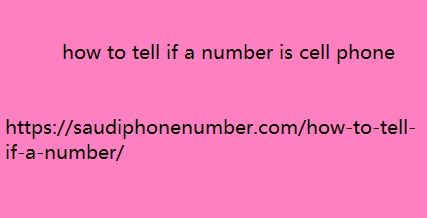What about businesses with different needs?
Customer Relationship Management (CRM) software is a powerful tool for sales teams, but what about businesses with different needs? If you manage a network of partners, collaborators, or simply a large address book, a CRM might be overkill. This article explores the world of contact database software designed specifically for non-CRM purposes, helping you find the perfect fit to organize and manage your valuable connections.
CRM vs. Contact Database: Recognizing the Distinction
While both manage contacts, there’s a key difference:
- CRM (Customer Relationship Management): Focuses how to tell if a number is cell phoneon nurturing leads and converting them into paying customers. Features include sales pipeline management, lead scoring, and deal tracking.
- Contact Database Software: Prioritizes organizing and communicating with existing contacts. Core functionalities include contact information management, group creation, and communication tools (email, notes).
Advantages of a Non-CRM Contact Database:
- Simpler Interface: CRM interfaces can be cluttered with sales-specific features. Contact database software offers a streamlined experience for managing general contacts.
- Cost-Effective: CRM solutions can be expensive, especially for features you might not need. Contact database software is often more affordable or offers generous free tiers.
- Flexibility: CRM software is geared towards sales processes. Contact database software offers more flexibility for various contact management needs outside the sales realm.
Top Contenders for Non-CRM Needs: Feature-Rich Contact Databases
Here are three excellent options specializing in non-CRM contact management:
1. Any.do:
- Strengths: An all-in-one task management tool with integrated contact management features. Create tasks and assign them to specific contacts, promoting streamlined collaboration. Offers list creation and note-taking functionalities for comprehensive organization.
- Non-CRM Focus: Task management takes center stage, with contact management features seamlessly integrated to support your workflow.
2. Notability:
- Strengths: A powerful note-taking app with a robust contact management system. Create detailed notes on interactions with contacts, link them to individual profiles, and leverage powerful search functionality to easily retrieve information.
- Non-CRM Focus: Prioritizes in-depth note-taking with contact management features acting as a valuable supporting element.
3. Hipswitch:
- Strengths: Offers a user-friendly interface with a free plan for basic contact management. Create contact groups, categorize information with custom fields, and utilize basic reporting for insights. Paid plans unlock advanced features like email marketing and automation.
- Non-CRM Focus: Prioritizes core contact management functionalities without the complexities of a full CRM solution.
Exploring Alternatives: Additional Options Worth Considering
The landscape is rich with diverse options:
- Capsule: A visual CRM solution Lead Generation Strategies for Startups with a user-friendly interface ideal for non-sales teams. Organize contacts visually using cards, create tags for easy categorization, and leverage drag-and-drop functionality for intuitive management.
- Streak (Free Version): While technically a CRM, the free version of Streak offers valuable non-CRM functionalities. Manage contacts, assign tasks, and utilize basic pipeline management features to track ongoing collaborations or projects.
- GSuite Contacts: For those already heavily invested in the Google ecosystem, GSuite Contacts offers a simple and free solution for managing contacts within Gmail. Integrate seamlessly with other Google tools for a cohesive workflow.
Choosing the Perfect Fit: Aligning Your Needs with the Right Software
When choosing, consider these factors:
- Team Size: Opt for software with appropriate pricing structures and collaboration features if managing contacts for a team.
- Desired Features: Prioritize functionalities most relevant to your needs. Do you need advanced search, task management, or email marketing capabilities?
- Integration Needs: Consider any existing software you utilize and choose contact database software that integrates seamlessly for a streamlined workflow.
Conclusion:
For businesses that don’t require the complexities of a CRM, a dedicated contact database software can be the perfect solution. By prioritizing features like organization tools, communication integrations, and user-friendliness, you can find software that empowers you to efficiently manage your network of contacts and cultivate strong, lasting relationships beyond the sales funnel. Remember, explore the diverse options available, consider your specific needs, and choose the software that best complements your workflow for non-CRM contact management success.



